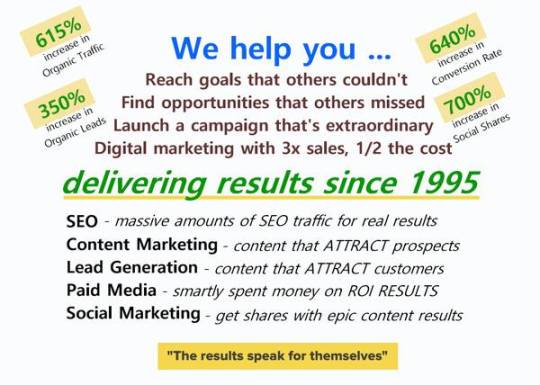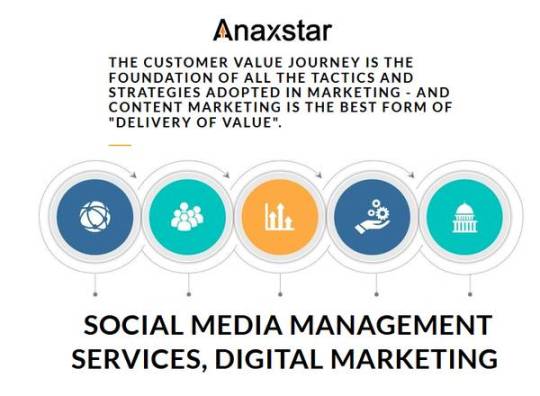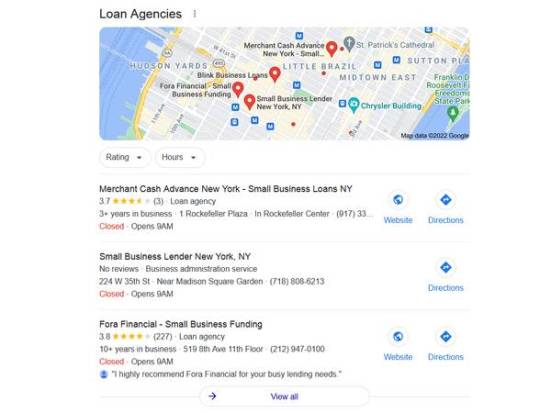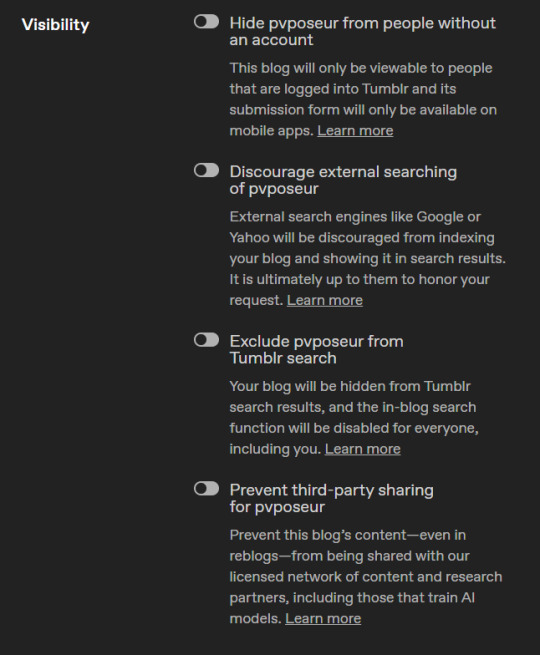#mobile advertising networks
Text
Mobile marketing in Bangalore
Webuniversals specializes in mobile marketing in Bangalore, offering targeted campaigns for mobile devices. Our services include SMS marketing, mobile app promotion, location-based marketing, and push notifications. We optimize mobile websites, analyze mobile user engagement, and implement effective mobile marketing strategies. Stay ahead of the competition with our mobile advertising solutions, driving lead generation and enhancing the mobile customer experience. Explore the latest mobile advertising trends with Webuniversals and maximize your marketing potential in Bangalore.
#Mobile marketing#Bangalore#webuniversals#digital advertising#mobile devices#targeting#campaigns#SMS marketing#mobile apps#location-based marketing#push notifications#mobile advertising networks#mobile-friendly websites#mobile analytics#mobile user engagement#mobile marketing strategies#mobile optimization#mobile customer experience#mobile advertising trends#mobile marketing solutions#mobile lead generation.
0 notes
Text

The Phase Connect Coffee company is going big time, and this time, they mean business.
They SERIOUSLY want you to buy the coffee, and you're gonna like it, because it's REAL, GREAT, and AUTHENTIC! Everyone should really love it.
14 of our lovely roasts to choose from, each with their own distinct flavor. It is destined to keep you happy for the decades to come.
So Yeah Buy Now!
No seriously. BUY IT NAOUGH
We swear, this coffee is NOT poison, and will NOT cause any side effects.
Phase Connect Coffee is not responsible for poisonous side effects
(and no, the Phase girls are NOT hacking my account.)
#phase connect#vtuber#vtuber coffee#advertisement#buy now#vtubers#nintendo#nickelodeon#cartoon network#anime#cartoons#mobile games#not sponsored#fyp#psx#fyanimegifs#fypage#tumblr fyp#foryou#disney#object shows
4 notes
·
View notes
Text
⌖ Jesus CHRIST, the WORST thing about PUBLIC WIFI is GETTING ADS on EVERYTHING AGAIN! How do you people LIVE LIKE THIS? I'm going to commit a CRIME!
#// she has her home & her radiotower & the hotel set up with pi-hole (a network-wide adblocker) but when she goes off the wifi and hops onto#mobile data or like the hellbucks wifi she gets all the ads and it gives her whiplash. I personally on earth keep getting ads for rightwing#propaganda and diet services and scams and plastic surgery alternatives. It's gotta be worse in Hell. The whiplash of getting a plastic#surgery advertisement when she wants to watch a funny video... knives out mf'er she's about to kill the next asshole she sees.
1 note
·
View note
Text
Diving Deep into the World of Mobile Content Affiliate Marketing

In today's rapidly evolving digital landscape, mobile affiliate marketing has emerged as a powerful advertising strategy. Mobile affiliate networks serve as integrated platforms that connect advertisers with app developers seeking to monetize their mobile ad space. By acting as intermediaries, these networks enable publishers to utilize supply-side platforms (SSPs) while advertisers leverage demand-side media (DSPs). With the exponential growth of mobile advertising, it is crucial for publishers to explore the best mobile ad networks available. Let's delve into some of the top platforms in the market, providing opportunities for publishers to maximize their reach and revenue.
Facebook/Instagram: As subsidiaries of META, Facebook and Instagram rank among the largest social media platforms globally, attracting millions of users. Leveraging their vast user base, these platforms offer highly effective mobile content advertising. Facebook and Instagram provide flexible campaign options suitable for both low and high budgets. Their advanced targeting features allow advertisers to narrow down their audience based on demographics such as age, location, gender, and interests, ensuring precise ad delivery.
AdMob: Owned by tech giant Google, AdMob serves as a mobile ad network and functions similarly to a miniature version of AdSense. With its user-friendly interface, AdMob is an excellent choice for beginners. This platform offers publishers the flexibility to choose from various ad formats, including text, images, and videos. Furthermore, its integration with other Google apps enhances convenience and provides a range of additional functionalities.
Apple Search Ads: Specifically catering to iOS app developers, Apple Search Ads enables targeting of Apple device users. Similar to Google Ads, Apple Search Ads creates sponsored ads that appear at the top of search results within the Apple App Store. This platform presents a valuable opportunity for publishers to increase their app's user base. However, its exclusivity to Apple restricts targeting Android users.
Smaato: Smaato has gained prominence as an excellent ad platform in recent times. It facilitates the buying and selling of ad space by connecting thousands of publishers and advertisers through its extensive user database. Smaato's real-time bidding capabilities create a highly competitive auction environment, allowing publishers to identify areas of high demand and maximize their profits. These valuable insights empower users to optimize their mobile content affiliate marketing campaigns effectively.
Unity: Designed specifically for monetizing mobile games, Unity offers video ads compatible with iOS, Android, and various game engines. Publishers can seamlessly integrate in-app purchases while leveraging ad formats such as interstitial, video, and banner ads. Unity's user-friendly dashboard provides comprehensive insights and performance metrics, enabling publishers to track their ad campaigns in real-time for effective monetization.
Mobile affiliate marketing offers numerous advantages for publishers. With smartphones becoming ubiquitous, this form of marketing enables businesses to reach a broader audience. Additionally, the ability to personalize ads and streamline the purchasing process enhances user engagement and conversion rates. Compared to traditional marketing methods, mobile affiliate marketing is quicker and more responsive, catering to the fast-paced digital landscape.
Choosing the right affiliate network is a crucial step in mobile affiliate marketing. Opting for reputable affiliate programs expands publishers' reach and provides valuable tools and functionalities to elevate their ad campaigns. By leveraging the power of mobile ad networks, publishers can tap into the immense potential of mobile advertising, effectively connecting with their target audience and driving revenue growth.
In conclusion, the world of mobile content affiliate marketing offers an array of opportunities for publishers to enhance their reach, engage their audience, and generate revenue. By leveraging top mobile ad networks like Facebook/Instagram, AdMob, Apple Search Ads, Smaato, and Unity, publishers can optimize their advertising efforts and achieve exceptional results. As the mobile advertising market continues to flourish, staying abreast of emerging trends and adopting innovative strategies will be essential for success inthe dynamic and competitive landscape of mobile affiliate marketing.
Thanks for reading!
#affiliate advertising companies#affiliate marketing company#best mobile affiliate networks#global affiliate marketing network#affiliate digital marketing companies
0 notes
Text







Why do our clients love working with us for more than 25 years?
T R U S T
Our clients trust us because we deliver. No excuses, no double-talk.
AND - our prices are the best in the industry since we do all the development work in-house.
See our pricing below.
No outsourcing, no middleman, no wasting money.
What we can do for YOU:
--- We can transform your business through specialized digital marketing strategies
--- We can save you money with SEO organic traffic that converts much faster than PPC
--- We invent, build and launch solutions to overcome your sales growth obstacles
--- We SAVE YOU A LOT OF MONEY by dealing DIRECT with the developers instead of high-priced agencies
--- We bridge the gap between you and your customers
--- We have been here helping clients like you since 1996
--- We provide you with a TECHNICAL SUPPORT person (on the phone) to help you every step of the way
--- Marketing and SEO Specialists with 20+ years of experience
--- Social Media Experts with a minimum of 15+ years of experience
--- Social Media Specialists with a minimum of 10+ years of experience
--- Writers for SEO content for blogs with a
minimum of 5+ years of experience
--- Email and Newsletter marketing Specialists with a minimum of 10+ years of experience
--- Website designers and graphic artists with 20+ years of experience
--- Brand Marketing Experts with 20+ years of experience
--- Book/eBook Marketing Experts with 20+ years of experience
--- Amazon Store and eCommerce Marketing Experts with 20+ years of experience
--- Starting from $250 packages for SEO for Local Google or Local Bing
--- Starting from $500 packages for Content writing
--- Starting from $750 packages for Content services
--- Starting from $1,000 packages for Content blog marketing
--- Starting from $1,500 packages for Social Media marketing (development and management)
--- Starting from $2,000 packages for integrated Content digital marketing
--- Starting from $2,500 packages for Content Brand Marketing
WHY CHOOSE US :
We deliver results
We guarantee our results
We have been delivering SEO and marketing services for 24 years
If we cannot get you to the top 3, we don't take the work. We don't waste your time, we don't waste ours.
We are honest, straight-forward, we do what we promise, and we deliver the results based on realistic expectations
Our customers become our friends
No minimum, no bate-and-switch, no hidden fees, no TERM contract, no-nonsense
A FEW OF OUR REFERENCES :
I am Josh Landon of https://iDirectIPO.com - we got excellent service and I am happy
to provide this reference. You can contact me at (415) 483-2850 or email me, [email protected]
We are very happy with our article content development.
My name is Elizabeth McLaughlin, and I am happy to provide this reference regarding the
excellent marketing services we received for http://discovernutritionalhealing.com/
You can contact me at (843) 410-3002.
Dave Ashbourne, DebtReliefNewYorker.com, +1 (646) 770-1440 - excellent marketing services we received.
Christina Albert, Founder and CEO of Valley Internet, (720) 770-0170 - we received incredible
marketing services, especially with article content development and promotion.
Here at https://www.botanicalmarvel.com we are delighted with the marketing service we
have been provided. You can contact me, Maria Hernández, at (415) 669-0110.
Look forward to hearing from you.
God bless,
Mark, Charly, Ethan, Emma, Janet
#Google SEO local business ranking#GMB#integrated multichannel content marketing services#social network content marketing management services#content marketing for small businesses#Google marketing#Digital marketing agency#Custom Web Design Development Marketing Services online#Content marketing with SEO#Website design development#logo design#digital marketing#ecommerce website#branding#social media marketing and setup#Google Ads#Bing Ads#Mobile website design services#Responsive Web design#online advertising#small business marketing#video development#video marketing with YouTube#blog development and blog lead generation#SEO (search engine optimization)#SEM (search engine marketing#Internet Marketing#music websites#business website#restaurant website
0 notes
Text
Your car spies on you and rats you out to insurance companies

I'm on tour with my new, nationally bestselling novel The Bezzle! Catch me TOMORROW (Mar 13) in SAN FRANCISCO with ROBIN SLOAN, then Toronto, NYC, Anaheim, and more!

Another characteristically brilliant Kashmir Hill story for The New York Times reveals another characteristically terrible fact about modern life: your car secretly records fine-grained telemetry about your driving and sells it to data-brokers, who sell it to insurers, who use it as a pretext to gouge you on premiums:
https://www.nytimes.com/2024/03/11/technology/carmakers-driver-tracking-insurance.html
Almost every car manufacturer does this: Hyundai, Nissan, Ford, Chrysler, etc etc:
https://www.repairerdrivennews.com/2020/09/09/ford-state-farm-ford-metromile-honda-verisk-among-insurer-oem-telematics-connections/
This is true whether you own or lease the car, and it's separate from the "black box" your insurer might have offered to you in exchange for a discount on your premiums. In other words, even if you say no to the insurer's carrot – a surveillance-based discount – they've got a stick in reserve: buying your nonconsensually harvested data on the open market.
I've always hated that saying, "If you're not paying for the product, you're the product," the reason being that it posits decent treatment as a customer reward program, like the little ramekin warm nuts first class passengers get before takeoff. Companies don't treat you well when you pay them. Companies treat you well when they fear the consequences of treating you badly.
Take Apple. The company offers Ios users a one-tap opt-out from commercial surveillance, and more than 96% of users opted out. Presumably, the other 4% were either confused or on Facebook's payroll. Apple – and its army of cultists – insist that this proves that our world's woes can be traced to cheapskate "consumers" who expected to get something for nothing by using advertising-supported products.
But here's the kicker: right after Apple blocked all its rivals from spying on its customers, it began secretly spying on those customers! Apple has a rival surveillance ad network, and even if you opt out of commercial surveillance on your Iphone, Apple still secretly spies on you and uses the data to target you for ads:
https://pluralistic.net/2022/11/14/luxury-surveillance/#liar-liar
Even if you're paying for the product, you're still the product – provided the company can get away with treating you as the product. Apple can absolutely get away with treating you as the product, because it lacks the historical constraints that prevented Apple – and other companies – from treating you as the product.
As I described in my McLuhan lecture on enshittification, tech firms can be constrained by four forces:
I. Competition
II. Regulation
III. Self-help
IV. Labor
https://pluralistic.net/2024/01/30/go-nuts-meine-kerle/#ich-bin-ein-bratapfel
When companies have real competitors – when a sector is composed of dozens or hundreds of roughly evenly matched firms – they have to worry that a maltreated customer might move to a rival. 40 years of antitrust neglect means that corporations were able to buy their way to dominance with predatory mergers and pricing, producing today's inbred, Habsburg capitalism. Apple and Google are a mobile duopoly, Google is a search monopoly, etc. It's not just tech! Every sector looks like this:
https://www.openmarketsinstitute.org/learn/monopoly-by-the-numbers
Eliminating competition doesn't just deprive customers of alternatives, it also empowers corporations. Liberated from "wasteful competition," companies in concentrated industries can extract massive profits. Think of how both Apple and Google have "competitively" arrived at the same 30% app tax on app sales and transactions, a rate that's more than 1,000% higher than the transaction fees extracted by the (bloated, price-gouging) credit-card sector:
https://pluralistic.net/2023/06/07/curatorial-vig/#app-tax
But cartels' power goes beyond the size of their warchest. The real source of a cartel's power is the ease with which a small number of companies can arrive at – and stick to – a common lobbying position. That's where "regulatory capture" comes in: the mobile duopoly has an easier time of capturing its regulators because two companies have an easy time agreeing on how to spend their app-tax billions:
https://pluralistic.net/2022/06/05/regulatory-capture/
Apple – and Google, and Facebook, and your car company – can violate your privacy because they aren't constrained regulation, just as Uber can violate its drivers' labor rights and Amazon can violate your consumer rights. The tech cartels have captured their regulators and convinced them that the law doesn't apply if it's being broken via an app:
https://pluralistic.net/2023/04/18/cursed-are-the-sausagemakers/#how-the-parties-get-to-yes
In other words, Apple can spy on you because it's allowed to spy on you. America's last consumer privacy law was passed in 1988, and it bans video-store clerks from leaking your VHS rental history. Congress has taken no action on consumer privacy since the Reagan years:
https://www.eff.org/tags/video-privacy-protection-act
But tech has some special enshittification-resistant characteristics. The most important of these is interoperability: the fact that computers are universal digital machines that can run any program. HP can design a printer that rejects third-party ink and charge $10,000/gallon for its own colored water, but someone else can write a program that lets you jailbreak your printer so that it accepts any ink cartridge:
https://www.eff.org/deeplinks/2020/11/ink-stained-wretches-battle-soul-digital-freedom-taking-place-inside-your-printer
Tech companies that contemplated enshittifying their products always had to watch over their shoulders for a rival that might offer a disenshittification tool and use that as a wedge between the company and its customers. If you make your website's ads 20% more obnoxious in anticipation of a 2% increase in gross margins, you have to consider the possibility that 40% of your users will google "how do I block ads?" Because the revenue from a user who blocks ads doesn't stay at 100% of the current levels – it drops to zero, forever (no user ever googles "how do I stop blocking ads?").
The majority of web users are running an ad-blocker:
https://doc.searls.com/2023/11/11/how-is-the-worlds-biggest-boycott-doing/
Web operators made them an offer ("free website in exchange for unlimited surveillance and unfettered intrusions") and they made a counteroffer ("how about 'nah'?"):
https://www.eff.org/deeplinks/2019/07/adblocking-how-about-nah
Here's the thing: reverse-engineering an app – or any other IP-encumbered technology – is a legal minefield. Just decompiling an app exposes you to felony prosecution: a five year sentence and a $500k fine for violating Section 1201 of the DMCA. But it's not just the DMCA – modern products are surrounded with high-tech tripwires that allow companies to invoke IP law to prevent competitors from augmenting, recongifuring or adapting their products. When a business says it has "IP," it means that it has arranged its legal affairs to allow it to invoke the power of the state to control its customers, critics and competitors:
https://locusmag.com/2020/09/cory-doctorow-ip/
An "app" is just a web-page skinned in enough IP to make it a crime to add an ad-blocker to it. This is what Jay Freeman calls "felony contempt of business model" and it's everywhere. When companies don't have to worry about users deploying self-help measures to disenshittify their products, they are freed from the constraint that prevents them indulging the impulse to shift value from their customers to themselves.
Apple owes its existence to interoperability – its ability to clone Microsoft Office's file formats for Pages, Numbers and Keynote, which saved the company in the early 2000s – and ever since, it has devoted its existence to making sure no one ever does to Apple what Apple did to Microsoft:
https://www.eff.org/deeplinks/2019/06/adversarial-interoperability-reviving-elegant-weapon-more-civilized-age-slay
Regulatory capture cuts both ways: it's not just about powerful corporations being free to flout the law, it's also about their ability to enlist the law to punish competitors that might constrain their plans for exploiting their workers, customers, suppliers or other stakeholders.
The final historical constraint on tech companies was their own workers. Tech has very low union-density, but that's in part because individual tech workers enjoyed so much bargaining power due to their scarcity. This is why their bosses pampered them with whimsical campuses filled with gourmet cafeterias, fancy gyms and free massages: it allowed tech companies to convince tech workers to work like government mules by flattering them that they were partners on a mission to bring the world to its digital future:
https://pluralistic.net/2023/09/10/the-proletarianization-of-tech-workers/
For tech bosses, this gambit worked well, but failed badly. On the one hand, they were able to get otherwise powerful workers to consent to being "extremely hardcore" by invoking Fobazi Ettarh's spirit of "vocational awe":
https://www.inthelibrarywiththeleadpipe.org/2018/vocational-awe/
On the other hand, when you motivate your workers by appealing to their sense of mission, the downside is that they feel a sense of mission. That means that when you demand that a tech worker enshittifies something they missed their mother's funeral to deliver, they will experience a profound sense of moral injury and refuse, and that worker's bargaining power means that they can make it stick.
Or at least, it did. In this era of mass tech layoffs, when Google can fire 12,000 workers after a $80b stock buyback that would have paid their wages for the next 27 years, tech workers are learning that the answer to "I won't do this and you can't make me" is "don't let the door hit you in the ass on the way out" (AKA "sharpen your blades boys"):
https://techcrunch.com/2022/09/29/elon-musk-texts-discovery-twitter/
With competition, regulation, self-help and labor cleared away, tech firms – and firms that have wrapped their products around the pluripotently malleable core of digital tech, including automotive makers – are no longer constrained from enshittifying their products.
And that's why your car manufacturer has chosen to spy on you and sell your private information to data-brokers and anyone else who wants it. Not because you didn't pay for the product, so you're the product. It's because they can get away with it.
Cars are enshittified. The dozens of chips that auto makers have shoveled into their car design are only incidentally related to delivering a better product. The primary use for those chips is autoenshittification – access to legal strictures ("IP") that allows them to block modifications and repairs that would interfere with the unfettered abuse of their own customers:
https://pluralistic.net/2023/07/24/rent-to-pwn/#kitt-is-a-demon
The fact that it's a felony to reverse-engineer and modify a car's software opens the floodgates to all kinds of shitty scams. Remember when Bay Staters were voting on a ballot measure to impose right-to-repair obligations on automakers in Massachusetts? The only reason they needed to have the law intervene to make right-to-repair viable is that Big Car has figured out that if it encrypts its diagnostic messages, it can felonize third-party diagnosis of a car, because decrypting the messages violates the DMCA:
https://www.eff.org/deeplinks/2013/11/drm-cars-will-drive-consumers-crazy
Big Car figured out that VIN locking – DRM for engine components and subassemblies – can felonize the production and the installation of third-party spare parts:
https://pluralistic.net/2022/05/08/about-those-kill-switched-ukrainian-tractors/
The fact that you can't legally modify your car means that automakers can go back to their pre-2008 ways, when they transformed themselves into unregulated banks that incidentally manufactured the cars they sold subprime loans for. Subprime auto loans – over $1t worth! – absolutely relies on the fact that borrowers' cars can be remotely controlled by lenders. Miss a payment and your car's stereo turns itself on and blares threatening messages at top volume, which you can't turn off. Break the lease agreement that says you won't drive your car over the county line and it will immobilize itself. Try to change any of this software and you'll commit a felony under Section 1201 of the DMCA:
https://pluralistic.net/2021/04/02/innovation-unlocks-markets/#digital-arm-breakers
Tesla, naturally, has the most advanced anti-features. Long before BMW tried to rent you your seat-heater and Mercedes tried to sell you a monthly subscription to your accelerator pedal, Teslas were demon-haunted nightmare cars. Miss a Tesla payment and the car will immobilize itself and lock you out until the repo man arrives, then it will blare its horn and back itself out of its parking spot. If you "buy" the right to fully charge your car's battery or use the features it came with, you don't own them – they're repossessed when your car changes hands, meaning you get less money on the used market because your car's next owner has to buy these features all over again:
https://pluralistic.net/2023/07/28/edison-not-tesla/#demon-haunted-world
And all this DRM allows your car maker to install spyware that you're not allowed to remove. They really tipped their hand on this when the R2R ballot measure was steaming towards an 80% victory, with wall-to-wall scare ads that revealed that your car collects so much information about you that allowing third parties to access it could lead to your murder (no, really!):
https://pluralistic.net/2020/09/03/rip-david-graeber/#rolling-surveillance-platforms
That's why your car spies on you. Because it can. Because the company that made it lacks constraint, be it market-based, legal, technological or its own workforce's ethics.
One common critique of my enshittification hypothesis is that this is "kind of sensible and normal" because "there’s something off in the consumer mindset that we’ve come to believe that the internet should provide us with amazing products, which bring us joy and happiness and we spend hours of the day on, and should ask nothing back in return":
https://freakonomics.com/podcast/how-to-have-great-conversations/
What this criticism misses is that this isn't the companies bargaining to shift some value from us to them. Enshittification happens when a company can seize all that value, without having to bargain, exploiting law and technology and market power over buyers and sellers to unilaterally alter the way the products and services we rely on work.
A company that doesn't have to fear competitors, regulators, jailbreaking or workers' refusal to enshittify its products doesn't have to bargain, it can take. It's the first lesson they teach you in the Darth Vader MBA: "I am altering the deal. Pray I don't alter it any further":
https://pluralistic.net/2023/10/26/hit-with-a-brick/#graceful-failure
Your car spying on you isn't down to your belief that your carmaker "should provide you with amazing products, which brings your joy and happiness you spend hours of the day on, and should ask nothing back in return." It's not because you didn't pay for the product, so now you're the product. It's because they can get away with it.
The consequences of this spying go much further than mere insurance premium hikes, too. Car telemetry sits at the top of the funnel that the unbelievably sleazy data broker industry uses to collect and sell our data. These are the same companies that sell the fact that you visited an abortion clinic to marketers, bounty hunters, advertisers, or vengeful family members pretending to be one of those:
https://pluralistic.net/2022/05/07/safegraph-spies-and-lies/#theres-no-i-in-uterus
Decades of pro-monopoly policy led to widespread regulatory capture. Corporate cartels use the monopoly profits they extract from us to pay for regulatory inaction, allowing them to extract more profits.
But when it comes to privacy, that period of unchecked corporate power might be coming to an end. The lack of privacy regulation is at the root of so many problems that a pro-privacy movement has an unstoppable constituency working in its favor.
At EFF, we call this "privacy first." Whether you're worried about grifters targeting vulnerable people with conspiracy theories, or teens being targeted with media that harms their mental health, or Americans being spied on by foreign governments, or cops using commercial surveillance data to round up protesters, or your car selling your data to insurance companies, passing that long-overdue privacy legislation would turn off the taps for the data powering all these harms:
https://www.eff.org/wp/privacy-first-better-way-address-online-harms
Traditional economics fails because it thinks about markets without thinking about power. Monopolies lead to more than market power: they produce regulatory capture, power over workers, and state capture, which felonizes competition through IP law. The story that our problems stem from the fact that we just don't spend enough money, or buy the wrong products, only makes sense if you willfully ignore the power that corporations exert over our lives. It's nice to think that you can shop your way out of a monopoly, because that's a lot easier than voting your way out of a monopoly, but no matter how many times you vote with your wallet, the cartels that control the market will always win:
https://pluralistic.net/2024/03/05/the-map-is-not-the-territory/#apor-locksmith

Name your price for 18 of my DRM-free ebooks and support the Electronic Frontier Foundation with the Humble Cory Doctorow Bundle.

If you'd like an essay-formatted version of this post to read or share, here's a link to it on pluralistic.net, my surveillance-free, ad-free, tracker-free blog:
https://pluralistic.net/2024/03/12/market-failure/#car-wars

Image:
Cryteria (modified)
https://commons.wikimedia.org/wiki/File:HAL9000.svg
CC BY 3.0
https://creativecommons.org/licenses/by/3.0/deed.en
#pluralistic#if you're not paying for the product you're the product#if you're paying for the product you're the product#cars#automotive#enshittification#technofeudalism#autoenshittification#antifeatures#felony contempt of business model#twiddling#right to repair#privacywashing#apple#lexisnexis#insuretech#surveillance#commercial surveillance#privacy first#data brokers#subprime#kash hill#kashmir hill
2K notes
·
View notes
Note
Hi, sorry to bother you, but we spoke a few months ago about Tumblr Support’s response to seizure and eyestrain inducing ads. And while it is good to report that they’ve added a feature to report those ads, I wanted to ask for some advice
I’ve messaged staff no less than ten times about this feature not working. The same ads show up on my dash, over and over again, no matter how many times I report them. I’m up to date with my software, and still I’m put in danger by being on this site, and I can only use mobile as I do not have a desktop
Should I just quit tumblr at this point? Staff really don’t seem to care. I tried my best to give them my patience, but this has been disappointing for months now, and none of it is getting solved regardless of how much people message them. Is there anything we can actually do about it? Nobody outside our sphere is taking notice
Some of this unfortunately just has to do with the way that ads are served. Reporting the ad will get that instance of an ad removed after a certain number of reports, but depending on how that ad is served, you might be seeing the same flashing visual ten times and the ad system considers it a different ad each time (think of it like ads on a bus - you are reporting the ad on bus 249, but not the ad on bus 250 even though they are showing you the same image; sometimes the flashing image will be one campaign - so all on bus 249 - and it won't get served to you again, sometimes the flashing image will be scattered in a dozen different campaigns with different names and metadata perhaps with the explicit purpose of getting past user reports because advertising is a garbage industry full of horrible shitheads). Unfortunately I'm not sure there is anything that can be done beyond reporting the individual ads in terms of getting them removed; online advertising is generally minimally supervised by humans, which is how you end up with things like starvation-bait diet ads getting blasted all over the site with a terrible history of pro-ana networks.
Since you're using tumblr exclusively on mobile, it seems like your two other options are:
Turn off autoplay which should (in theory) stop any video (including ads) from playing in the app unless you allow it. Here's how to do that on iOS and Android.
Use the app exclusively from your mobile browser with an adblock enabled (won't work for iOS, changes the user experience pretty drastically).
There's one possible other option that I am not *recommending* I am simply stating that it is an option to explore: you could look into an adblocker like AdLock that does global video blocking on a mobile OS. The reason I'm not recommending it is that these kinds of adblockers cost money and are not known for being very reliable. It is something to investigate more if you are out of all other options
It seems likely that you've already turned off the autoplay, so that's probably not useful advice. If you haven't tried using tumblr in a mobile browser with ads blocked, that might be worth giving a shot before you give up on the app as a whole.
It's a really shitty situation and I'm sorry you're dealing with it.
261 notes
·
View notes
Text
out of character for me, I wanted to make a bit of a PSA about something that I think most people in the ad industry are talking about, but hasn't really penetrated the public consciousness yet. Here it is:
Use a different email for every site you sign up for
You may or may not have heard about it, but browsers and operating systems are getting rid of tracking capabilities. This includes plans to get rid of third-party cookies and "consent based" access to advertising identifiers on iOS. These changes represent a large increase in privacy for casual internet browsing, but they force advertisers to look for new and sneakier ways to track and target people—in some senses, they are the "starting pistol" for the ad tracking arms race.
The most common and profitable replacement for many sites, including most social media networks, is so-called "first party identifiers"—that is, using the information that you provided to the website when signing up, like your email address or your phone number.
These first party identifiers are then shared with all advertisers, so that e.g. if you view an ad on tumblr.com, and you recently made a reservation on Airbnb with the same email address, or viewed a livestream on twitch, advertisers would have access to a "profile" of you that marked you as someone who might be interested in rentals, or as someone who might be interested in specific videogames, or streamers. This is most common right now with mobile apps, due to Apple's big IDFA push, and because it's easier to get users to sign up for an account and provide their phone number. (And possibly because there seems to be less oversight and publicity around mobile app tracking—it requires a much more specialized skillset and larger time investment to reverse engineer an app than it does to build a browser extension to track trackers). But these exact same tactics, once perfected in the mobile app ecosystem, are probably going to continue to show up on more and more web sites if and when browsers continue to remove advertisers' tracking capabilities for larger and larger numbers of users.
There is also very little visibility into how these datasets are managed. In theory, depending on the companies involved and the datasharing agreements, you might even be able to buy browsing history for a specific (known) email address—and without any of the individual companies involved having sold your data. These data sharing agreements are structured as advertising revenue for targeting, where advertisers will pay more money for ads with this first party data associated with it, but any advertiser who participates in these ad slot auctions gets notified that so-and-so's (hashed) email address viewed such and such a website at this particular time, and they could theoretically use that data for whatever purposes they wish (depending on the contracts they have with the advertising exchanges and data sharing providers in question).
Anyways, this has been on the horizon for a long time now, but it's becoming increasingly important and increasingly common. Use a different email address for every site you sign up for. Don't give people your phone numbers. Ask companies whether they use account data for ad targeting, and make a big stink about it when they do.
#i try not to make public posts about ad tech as a salve for my conscience#but i do think this information is useful to people#so i promise I'll try to continue to beat myself up the necessary amount
3K notes
·
View notes
Note
Because of your latest post: not sure if you’ve answered this before, but how does someone even entertain the idea of writing for the game dev industry? Did you start out on indie games or just write before and show them your work? Since it’s such a subjective field etc
if i have, it bears repeating! here's a rough timeline of what i did. never discount the value of luck and the kindness of friends
2016: i was doing a random freelance transcription job when i saw @theivorytowercrumbles post about writing for voltage. they reblogged the studio's open casting call for new writers. since it was so lenient - no experience, fanfic samples allowed - i applied. they hired me for their new project, but let me go after a trial period, citing that the tone of my writing was a bad fit for that game. i foundered for a while after that. i don't take rejection well. i started dangerous crowns to try to make money from writing some other way.
2017: one of voltage's producers reached out to me and said they'd started another project that i was a good fit for. she felt letting me go was a mistake and wanted to snap me back up. i said yes, i mean, are you kidding? so i started on reiner's route.
2018-2019: i kept at it. i took on diego's route. it occurred to me that i wasn't making very much money, but i liked my coworkers, and i was building my portfolio, so who cared? i also finished dangerous crowns, and a handful of people bought it, but certainly not enough to support myself or anything.
early 2020: between the pay and creative differences with voltage's team, it started to sink in that i needed to find other work. i applied to the few open game writer jobs i could find, but with only mobile romance in my portfolio, i got nowhere. i threw in dangerous crowns samples. i tried to network on twitter. i still never made it to the interview phase. i foundered for a while again.
late 2020: the voltage writers went on strike. i gave a statement to a journalist that one of obsidian's narrative designers noticed. we became acquaintances over it. another old friend of mine threw me a life raft in the form of a different contract, better paying, on a non-romance indie game. i took it gladly. i added a twine game to my portfolio, too. i kept applying. i got a few interviews, but something still didn't click.
2021: i finally accepted that i needed formal help. i did a portfolio workshop. i got resume coaching. the coach passed my name to a writer on the company of heroes team. they liked me! they also paid me more money than i'd ever seen in my life. at the same time, obsidian advertised a narrative job opening. i applied on a lark and let my ND pal know i was doing so. why not, right? college-new-vegas-fan me would want me to. they rejected me, but not before i passed their writing test and two interviews. i had nothing to lose at that point, so i told my ND pal that i was bummed. she gave me a golden piece of advice: "you came really close. try again."
2022: obsidian had another narrative opening. i threw myself at it. i was now going to annoy them into hiring me. since i was a known quantity from applying six months before, they had no qualms about interviewing me again. this time, it worked out, and i've been there ever since.
what's the common denominator here? i met people who thought i was all right and gave me a hand up when i needed it. the standard advice is to work with a community of your peers instead of trying to get your heroes to senpai-notice you. it's not that they don't care - they just have their own thing going on, and your peers could be the heroes of tomorrow if the right project comes along. i also found the portfolio was the end-all-be-all when it came to job hunting. i went through a grieving process with that! i'm not afraid to admit it. i wish studios had held my degree or dangerous crowns in higher regard, but i just had to make games in a wider variety of genres, and that was that.
one caveat: narrative is a really saturated field right now. a lot of people want to write, and there aren't many openings. it's not uncommon for big studios to get hundreds of applicants. larian probably got over a thousand for the job they posted recently. i feel awful saying that, because i don't want to discourage you, but i'd feel worse if i didn't let you know what you were getting into. if it's something you want, you should try! keep an open mind about the random projects you may find. you never know where they'll take you.
55 notes
·
View notes
Text

Ralph Lauren Takes His Line on the Road
By Stephanie Strom Sept. 23, 1993 (Originally published in the NYT)
While other retailers are taking their acts to television's home shopping networks, Ralph Lauren is taking his new line of jeans and rugged clothing on the road in an 18-wheeler.
A team of nine young salespeople yesterday started selling the designer's RRL, or Double RL collection out of a Peterbilt semitractor trailer truck parked on the campus of New York University in Manhattan. The trailer, painted with mustangs running across one side and pulled by a cherry red cab, plans to visit college campuses across the country cultivating customers who might otherwise miss the company's more traditional marketing efforts.
"It's a traveling billboard," Mr. Lauren, who looked as if he had just stepped out of one of the on-board dressing rooms in full RRL attire, said in a truckside interview at N.Y.U.
But it goes beyond that. The truck gives the designer, who is as much a savvy marketer as he is a fashion maven, and his retail empire reach beyond the fashion magazines and department store shops that feature RRL clothes. College students do not necessarily look to the ads in Esquire and Vogue for wardrobe ideas, Mr. Lauren reasons, or spend money in department and specialty stores.
Ralph had challenged us to come up with a new way of reaching young people because they don't read magazines as much," said Mary Randolph Carter, vice president of advertising for the Polo Ralph Lauren Corporation.
Peter Strom, the company's to-the-point President, explained that the traveling store was not about making a profit but, rather, about making a statement. The truck is scheduled to stop on college campuses through the first week of December, but Mr. Strom said he would be willing to finance a spring tour if the one this fall won the company exposure.
That sales are a secondary goal is not surprising, since $68 blue jeans and $78 flannel shirts may not fit into the average college student's budget. But Mr. Lauren is not worried about prices. "All the prices are very competitive," he said. "My products are really good products, high quality, and people will pay for that." Thrift-Shop Ambience.
The shop inside the truck, which has a sort of a Salvation-Army-thrift-shop-meets-general-store atmosphere, opens onto a tented area where clothes are stacked on battered industrial work tables, tossed into baskets or hung on mobile pipe racks. The collection is heavy on items like roomy barn jackets, tooled belts, faded flannel shirts and worn jeans
To handle logistics and campus politics, the company teams up at each campus it plans to visit with a student group, which then makes arrangements for the truck's arrival. In exchange, the traveling RRL shop donates 10 percent of its profits to the sponsoring organization.
Ads in campus newspapers and an "800" telephone number help herald the arrival of the truck, which stays two days at each campus. After leaving N.Y.U. it will head for the University of Connecticut at Storrs and then the University of Massachusetts at Lowell.
Said Sam Hamilton, the 29-year-old road manager who is leading the team, "I figure I can write a memoir when it's all over."
#double rl#rrl exchange#ralph lauren#rrl#ralph lauren western#rrlexchange#polo western#rrl western#polo ralph lauren#doublerl#rrl vintage
23 notes
·
View notes
Text
Unveiling the Power of Affiliate Marketing Companies: Unlocking Success Through Collaboration

In the vast and ever-expanding landscape of digital marketing, one strategy has proven to be a game-changer for businesses of all sizes: affiliate marketing. It has emerged as a lucrative avenue for companies seeking to boost their online presence, drive sales, and expand their customer base. At the heart of this flourishing ecosystem are affiliate marketing companies, which play a pivotal role in connecting businesses with affiliates and orchestrating mutually beneficial partnerships. In this article, we delve into the world of affiliate marketing companies, exploring their significance, core functions, and the impact they have on the overall digital marketing landscape.
Defining Affiliate Marketing Companies
Affiliate marketing companies act as intermediaries, bridging the gap between merchants and affiliates. They facilitate the establishment of partnerships by providing a platform where businesses can promote their products or services and affiliates can join programs to earn commissions. These companies leverage their expertise, technological infrastructure, and network to manage the entire affiliate marketing process efficiently. From tracking sales and commissions to providing resources and support, they streamline operations and foster successful collaborations.
Core Functions of Affiliate Marketing Companies
Recruitment and Onboarding: One of the primary functions of affiliate marketing companies is to recruit affiliates who align with the merchants' target audience and business objectives. They employ various techniques such as outreach campaigns, affiliate directories, and referral programs to attract potential affiliates. Additionally, these companies facilitate the onboarding process by providing comprehensive information about the affiliate program, including commission structures, marketing materials, and tracking mechanisms.
Program Management: Affiliate marketing companies oversee the day-to-day operations of affiliate programs. This includes monitoring affiliate activities, ensuring compliance with program guidelines, and resolving any issues or disputes that may arise. They provide intuitive dashboards and reporting tools to merchants, allowing them to track the performance of their affiliate campaigns, analyze key metrics, and make data-driven decisions.
Performance Optimization: With a deep understanding of the affiliate marketing landscape, these companies employ strategies to maximize the performance of affiliate campaigns. They offer guidance and resources to affiliates, helping them optimize their promotional efforts through effective content creation, search engine optimization (SEO) techniques, and conversion rate optimization (CRO) strategies. Additionally, they collaborate closely with merchants to refine their affiliate program's structure, incentives, and promotional materials for optimal results.
Payment Processing: Affiliate marketing companies handle the financial aspect of affiliate partnerships. They track sales, calculate commissions, and ensure timely and accurate payment disbursement to affiliates. By maintaining transparent and efficient payment systems, they foster trust and motivate affiliates to deliver their best performance.
The Impact of Affiliate Marketing Companies
Increased Reach and Brand Exposure: Through their extensive network of affiliates, these companies enable businesses to tap into new markets and reach a broader audience. By leveraging the diverse promotional channels and strategies of affiliates, merchants can significantly enhance their brand exposure and attract potential customers who may not have been aware of their products or services otherwise.
Cost-Effective Advertising: Affiliate marketing operates on a performance-based model, where businesses only pay affiliates for successful conversions or sales. This pay-for-performance approach makes it a cost-effective marketing strategy, as merchants invest in advertising efforts that yield tangible results. Affiliate marketing companies play a pivotal role in ensuring fair and transparent compensation for affiliates, encouraging sustained collaboration.
Building Strong Partnerships: Affiliate marketing companies foster a collaborative environment, where merchants and affiliates work together towards mutual success. By nurturing these partnerships, businesses can expand their network, leverage the expertise of affiliates, and gain valuable insights into consumer behavior. Affiliate marketing companies act as facilitators, nurturing trust and fostering long-term relationships that benefit all parties involved.
Affiliate marketing companies have revolutionized the digital marketing landscape by connecting businesses with a vast network of affiliates.
#affiliate advertising companies#affiliate digital marketing companies#best mobile affiliate networks#global affiliate marketing network#Affiliate marketing company#affiliate marketing company in india
1 note
·
View note
Text
Some of my favourite bits from the landmarks/setting of Heart: The City Beneath:
The starting layer, Derelictus, was originally intended to be the massive central station for the cursed Vermissian train network, but it was never connected to the system, so it remained intact when shit went tits up and everything else got metaphysical. It’s a mini-city, the City Between, that’s arranged on the four massive vertical platform levels of a train station.
I fucking love the Vermissian stations in general: there’s the one precariously arranged around massive crystal stalactites that continuously threaten to fall and crush the station, there’s the flooded one with broken pumps and intact vending machines, there’s the one that’s a terrifying amusement park, there’s the one with glass floors suspended precariously over an artificial lake containing a captive sea monster, there’s the one that’s an eerie fake city where there’s nothing unique, all the tiles, streets, shops, etc are the same one tiled over and over again, and then there’s the crown jewel, Terminus, the metaphysical turntable station where the turntable can be rotated dimensionally to hook up to every single possible line. I love the Vermissian. I adore this mad train network so much.
There’s a grove full of aggressive drug dealer druids who supply the Cities Above and Beneath, and one of the suggested quests you can get is from a burly naked druid who has to get a shipment of hallucinogenic mushrooms to a Vermissian Sage, but he can’t be having with that technological hellscape nonsense, so he hires you to ship it for him.
There are seven temples to the Moon Beneath, one central one and six subsidiary ones each devoted to one of the six Damnic Virtues. My favourite is Athane, Temple of Sagacity, which has developed into an endless debating floor because the priests have come to believe that something catastrophic will happen if the debate ever ends, so one of them always has to be standing and lecturing on something. They are desperately grateful if literally anyone else would be willing to stay a while and hold the floor on any subject for long enough for them to get a break.
In the Tunnels of Wet Filth, where the sewers from the City Above flow down to and where the ground is covered in liquid filth, there’s a doctor named Aster who advertises his ‘purgatives’ that can cure you of any illness. Since witchdom is a blood-borne disease in this universe, you can meet a witch who would like to be rid of it, and asks you to escort her up there. The thing is, apparently his advertising is absolutely not false, as she actually can just hyurk up her magic after his purgatives. So, like. He lives in a literal cesspit that can curse you with eternal stench to enter, but he is absolutely not lying about his product?
There’s a mobile predatory library stalking around tiers 2 and 3 of the Heart with a dragon-larvae at its heart hungering for knowledge. The librarians are all mind-controlled slaves, and that is absolutely a fate that can happen to you, if you spend too long or take too much damage in there. But it has an absolutely staggering collection, and if you’re looking for answers, it genuinely is the place to go.
The headquarters of the Hounds, the cursed remnants of a massacred army sent to conquer the Heart, is the Bunker, a central command structure in the heart of a web of trenches and razorwire, because the Hounds are basically WWI vets cursed to immortality by an ancient sentient hellscape. I’m going to give you one of the potential quests here verbatim from the book, because it’s fantastic: “A one-eyed quartermaster hires you (D10, Haven) to carry a single bottle of rotgut whiskey to the Bunker so the commanders of the 33rd have something to drink. Can you make it there and keep the bottle intact?” Followed by: “That quartermaster shouldn’t have paid you up front, and you drank the whiskey without ever going to the Bunker. Now you’re being hunted by thirsty and unpleasantly sober immortal soldiers. How are you going to make amends?” Rule one: do not deprive immortal traumatised vets of their alcohol, what’s wrong with you?
The Ghastling Plain down in tier 3 is a sea of ash underneath a perpetually burning ceiling-sky, where people live in stilt houses and ‘fish’ for eyeless lizards and strange land-squid in the ash beneath, or sail on skiffs across the surface of the ash. It’s desolate and beautiful.
There is another mobile rogue library called Papilous, this one extra-dimensional, where dream moths suck secrets like nectar out of people’s ears and librarians gently brush the thought-pollen from the moths into books. It’s actually Silent Hill, in that there is a benevolent and a malevolent version of Papillon, nested inside each other, and one can cross between them by accident. The inhabitants of either version do not believe that the other exists.
There are eight extra-dimensional Heavens you can access (especially if you’re a Deadwalker), and my favourite is the Source, which the gnolls of one of the surface nations discovered through their mechano-occult investigations, and from which they draw the energy that powers their machinery. It’s a great mechanical labyrinth of electrum and gold that courses with energy, including lethal surges of it, and is defended by constructs that prevent mortals from messing with the circuitry, as Expedition 23 found out to the tune of a single survivor. The gnolls have been sending living expeditions into it from the ziggurant in their capital city in the south, but delvers in the Heart can also make their way in. The twain can meet, which I find amusing: two different blasphemous mortal expeditions into a heaven meeting accidentally in the middle.
One the subject of what happens if you die while already illicitly in an afterlife, the book has this fantastic note: “Short answer: we don’t know. Make it up. No-one’s supposed to get into heaven while they’re alive, let alone get stabbed in the gut and bleed out there, so metaphysics tends to handle it on a case-by-case basis.” Which, you know. Fair.
This is such a gnarly setting. I deeply enjoy it. Especially the trains. I just. I really, really love the trains?
#ttrpgs#heart the city beneath#worldbuilding#setting#such a cool setting#very darkest dungeon meets sunless sea#i love it
15 notes
·
View notes
Text
listened to a podcast from tumblr ceo matt mullenweg abt his plans for tumblr and such and wrote down some quotes i found Interesting . (some are not word for word bc auditory processing + memory etc but i tried to stick to what he said as much as i could)
(on being ceo of a social network) "it is as hard as being the leader of a country"
"it needs to do a good job at showing you things you want to see- so both the people you follow but maybe also exposing you to new things you don't know about yet"
"people want their own home on the web, they want it to be something reflects them, not the needs of an advertiser"
"how do we make this amazing and really give the tumblr community what they deserve, and also give the world an alternative from these closed-proprietary advertisement-driven social networks?"
"you can have custom themes, you can customize it every little bit .. what we wanna do is making it be the best of both worlds, giving you the full customization that u currently have on tumblr, that u also have on wordpress, but still provide a streamlined interface, particularly on mobile ... you kind of move in and out of that full customization"
"that's ultimately what we're about, is giving power in the hands of users"
"what people really want isnt what they say they want ... its kind of like expressed preferences vs stated preferences ... thats probably why [other social medias] dont give u total control over ur algorithm"
"i want to have a path where you can start with, call it 'just' a tumblr ... but if you want to turn that into an e-commerce store, or customize it in a different way, or build a newsletter, or a mailing list, or create a membership site- these are all things that are supported by wordpress today"
"tumblr's userbase are primarily young .. more women than men which isnt common in technology .. its a very safe place and vibrant community for lgbt+, i think its over a quarter of the userbase.. kind of a place for art and artists"
"how do we make that a path to the wordpress open source community ... excited about ..bringing a younger demographic into wordpress"
"[the amount of new users from twitter/reddit are] less than you would think in the long term"
(to reddit/twt migrants) "give us feedback! what do you miss from the old thing when you move over?"
"i'd definitely like it to be as big as twitter or instagram"
"for tumblr for example i think [AI] could make our developers a lot more productive, their coding could be checked/tested by ai, .. that'll allow us to do a lot more .. maybe our pace of development could increase."
"ai can be a huge help in assisting on moderation, if it could help flag things before people even report them, that someone could look at and review."
"the algorithm [for the feed/dashboard] is a form of ai- its really machine learning, people use the terms interchangeably- if we could make the feed a lot better, we could tweak it and really learn the things u want to see and the people u want to follow"
"it could provide some really cool tools, when u think of the generative ai stuff, whether its dall-e or midjourney. so much of what people do on tumblr is expressing art and creativity, and theres some people who are resistant to this, but im actually hearing far more artists that are like 'wow! this is another tool in my toolbox!' its not just like using it instead of doing ur work, it's helping with the first draft, or helping u come up with new ideas, or maybe accelerating part of a workflow. so i see it like a new type of paintbrush, or new colors they can use. they see it as a new way to express their creativity. to me that's also the future. .. just like any other tool, like when we moved from typewriters to word processors."
(asked if generative AI worries him) "bad actors using ai to do more bad things .. that's definitely smth that's gonna happen, that's true with any new technology. if u rob a bank before, u used to have to get away on a horse, now you can get away on a car [laugh]. so like, think of it like that. we don't say "oh, banks are gonna be robbed so much more cuz now people can drive away faster". the good guys have cars too, so the police have cars .. it becomes something that is part of society .. there's more good people than bad people"
51 notes
·
View notes
Note
do you have pokemon sleep?
No, I collected snippets of their privacy policy. I was very uncomfortable with them collecting this data about my sleep habits.
5. WHO WE MIGHT SHARE YOUR INFORMATION WITH
In connection with the purposes and on the lawful grounds described above, we will share your personal information when relevant with third parties such as:
(f) Ad network. Service providers that deliver information to you via ad network system regarding Pokémon's current or future products and services (Adjust KK, based in Japan, and its subcontractors, such as Adjust GmbH, Lease web Germany GmbH, Lease web Netherlands B.V., and Leaseweb USA, Inc., based in Germany, Netherlands, and USA).
(g) Other third parties (including professional advisers). Any other third parties (including legal or other advisors, regulatory authorities, courts, law enforcement agencies and government agencies) based in the UK, USA, Japan, and other countries/regions to enable us to enforce our legal rights, or to protect the rights, property, or safety of our employees, or where such disclosure may be permitted or required by law.
We, and others, use cookies, web beacons, device IDs, and other tracking mechanisms to ensure that you get the most out of our App. Cookies are small amounts of information in the form of text files which we store on the device you use to access our App. Cookies and other tracking mechanisms, such as device IDs, allow us and others, to monitor your use of the software, simplify your use of our App, and to help us and others associate the mobile devices you use, your activities across websites, and your browsers for advertising purposes.
7.2 Our website may contain content and links to other sites that are operated by third parties that may also operate cookies and other tracking mechanisms. We do not control these third-party sites or their tracking activities, and this Privacy Notice does not apply to them. Please consult the terms, conditions, and Privacy Notice of the relevant third-party site to find out how that site collects and uses vour information and to establish whether and for what purpose it uses cookies.
8. HOW WE LOOK AFTER YOUR INFORMATION AND HOW LONG WE KEEP IT FOR
8.1 We use appropriate technological and operational security measures to protect your information against unauthorized access or unlawful use.
8.2 We will retain your information for as long as is appropriate to provide you with the services that you have requested from us or for as long as we reasonably require to retain the information for our lawful business purposes.
27 notes
·
View notes
Text
Visibility Features + Preventing Third-Parties Sharing Our Info.


So I was in the process of making my new blog strictly for advertising my fanfics, original fiction, worldbuilding, and what have you. Now because of the recent events that came about with Tumblr being Stupidr and giving out everybody's shenanigans "to train AI models" as they claim, I wanted to go ahead and go out of my way to Enable it (something I strongly encourage literally everybody to do btw).
Hide <username> from people without an account. This blog will only be viewable to people that are logged into Tumblr and its submission form will only be available on mobile apps. Learn more.
Discourage external searching of <username>. External search engines like Google or Yahoo will be discouraged from indexing your blog and showing it in search results. It is ultimately up to them to honor your request. Learn more.
Exclude <username> from Tumblr Search. Your blog will be hidden from Tumblr search results, and the in-blog search function will be disabled for everyone, including you. Learn more.
Prevent third-party sharing for <username>. Prevent this blog's content—even in reblogs—from being shaerd with our licensed network of content and research partners, including those that train AI models. Learn more.
Three of the four things listed above are, in my opinion, strictly optional (for the most part) whereas one of them is obligatory. And that, once again, happens to be the Prevent third-party sharing for <username> option.
Now using programs such as DeepL, Grammarly, Hemmingway, ProWritingAid, and what have you are fine since they're writing assistants. What that means is that they're used for improving our grammar, punctuation, phrasing, etc. But using AI Programs to "create" fanfics or original stories or fanart or adoptables to sell?? No. That's not okay.
It's one thing to trace over things to learn how to make body parts proportionate in various angles. In fact, it's encouraged for young artists to start out by tracing and then watching/reading/viewing tutorials on how to draw things via freestyle and by merely looking at them. And when it comes to improving our writing styles it's best to read a lot of books, poetry, scripts, articles, songs, etc. because this helps us learn a wide variety of different literary devices and point of views and writing styles. Not only that but it also broadens our vocabulary. The same is equally true for constantly writing. The more we write the better our writing, style, vocabulary, and what have you improve.
This is why so many of us are anti-AI. There are so many people who pour their hearts and souls into their art (be it writing, gfx, drawing, or whatever) and these AI Bots are taking all of these away from us. They're also very privacy invasive (in which the internet is already hella problematic when it comes to being invasive and not caring about our privacy so there's that to consider).
#visibility feature#visibility features#feature#features#anti ai#tumblr update#tumblr updates#artificial intelligence#third party sharing#psa#public service announcements#public service announcement
17 notes
·
View notes
Note
Hihi Skyen :) I was wondering if you had any thoughts on the movement of bringing back old personal websites and webrings and rejecting the social media capitalistic hellscape
Last year I got into old websites and Neocities stuff, even getting into coding to make my own website there, and you come across as the type of person who could have some interesting thoughts on a subject like this :O
Such as being a content creator and being inebitably shackled to popular social media, for the lack of a better word.
I don't know, sorry if this is silly, I hope you're having a nice day :) Love your content, been following for years!
Oh I have a lot of thoughts about that actually, and not just because some of my videos are sponsored by Squarespace™
Squarespace™, build your online presence today!
In seriousness, though... I am first of all strongly in favor of the personal website (I should really get around to properly rebuilding my own). Platforms fundamentally cannot be trusted, and their amoral business interest is to homogenize their users as much as possible, the better to package them as product for advertisers, which is their business.
Personal sites are personal, they allow you to take back control of your online profile and online life, and of the things you publish. They are absolutely fantastic for any creative worker as a means of building a strong portfolio and brand, albeit at the cost of requiring upkeep and maintenance.
The thing they lack, and it is a critical thing, is discoverability. They lack the means to connect with an audience, to be found among the hundred billion websites on the global web.
It used to be Google took care of that, but its search results are increasingly bought and paid for and the scope and scale of the internet makes it functionally impossible to make it to the front page of any search result unless you have money to drop on serious SEO and, of course, advertising with Google. So now the platforms hold a functional monopoly on that feature. Facebook, Twitter, Reddit, Tumblr... at this point even TikTok serves that role.
I could make the videos I want, no significant number of people would ever have seen them if not for YouTube's recommendation algorithm. And because my audience is hooked to their platform, trying to get them to pick up sticks and come with me to a new one is... functionally impossible. Worse is that a vast majority of web traffic in the modern day exists on mobile, and the vast majority of THAT is locked in the ecosystems of apps, which introduce their own host of walled garden conditioning and barriers to drawing users to personal websites.
These issues can be addressed in some ways by old school means:
Mailing lists
RSS feeds
Webrings and other linkswaps
Old-fashioned networking
But it will almost certainly never reach the scope and scale of discoverability platforms can do by sheer dint of their size and resources.
Which is why I wouldn't necessarily recommend personal websites as a Content Creator's™ main form of publishing, for example, but as a supplemental way of building a presence online.
But as a thing to build for yourself, a means to stake your claim to a space on the internet that belongs to you, as a means to be creative, a personal website is a fantastic project.
81 notes
·
View notes